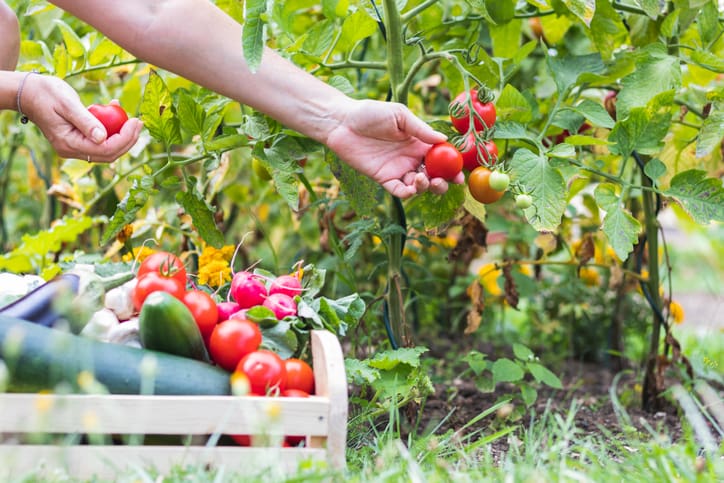Across a number of recent blog posts, we have been considering food and its relationship to your recovery journey. We started with three blog entries that took us from breakfast through a late night snack and considered what kinds of food supported your efforts to stay sober. We followed that up with an entry focused more generally on making good nutritional choices, featuring five key kinds of food that help you build a strong foundation for ongoing sobriety.
In this entry, we want to shift the focus a bit. Rather than delving into questions of what you should or should not eat to give yourself the best chance of staying sober over time, we want to consider two activities related to food that can support your recovery in other ways.
Let’s consider the benefits of gardening and cooking.
Get Out in the Garden to See Growth in Your Recovery
Having an engaging hobby that you truly enjoy is a wonderful way to lower stress while relaxing and recharging. For many people, gardening is the perfect hobby for achieving those outcomes.
Whether you grow food or flowers—or both—a garden provides a place to set goals, reap rewards, explore your creativity, and even get some exercise while enjoying the benefits of spending time in the sun. All of those practices and results go a long way toward keeping drugs and alcohol off of your mind and away from your body.
As we have noted, gardening offers benefits regardless of what you grow, but in keeping with our series on the importance of food in recovery, we suggest that you at least consider planting seeds that might yield some delicious fruits or vegetables. Of course, what you can grow will depend on a number of factors including how much space you have to devote to a garden and the weather in your area.
Odds are good, though, that you will be able to grow some foods you enjoy eating. And while some of those foods might be good raw, often some cooking is in order. And you know who can do that cooking? You can.
Get Into the Kitchen to Cook Up Support for Your Sobriety
There is a chance that you are already a good cook—or at least a frequent preparer of meals. But there is also a chance that cooking feels too time consuming and stressful to be something you do regularly. Maybe your fridge is filled with takeout leftovers rather than leftovers of delicious food that has been lovingly prepared. We would like to suggest that meals made at home with healthy ingredients (like those that come from your garden) lead to better health outcomes and thereby better support your sobriety.
If you have been thinking of each day’s cooking as a chore you have to get through or ignore, it can be helpful to reframe the activity as a hobby. After all, cooking provides opportunities to learn, to experiment, and to enjoy sharing the results of your labor with others. There seems to be an endless supply of cookbooks—as well as television shows, podcasts, classes, and more devoted to cooking—filled with fun options to try. You can find easy recipes to start and work your way toward more complex and extremely delicious creations. And you can find recipes that relate to just about any topic you can imagine.
Getting the gang together to try what you cook is a wonderful way to support your sobriety as well. A strong, supportive social network can help you stay sober—and offers plenty of other benefits besides.
We Hope We Have Provided Food for Thought
Our goal in this entry, as we have noted, is to remind you that food-related activities can be an important part of your recovery journey. Whether you take up gardening, cooking, or both, you will be doing your sobriety a favor.
Don’t Let Drugs or Alcohol Eat You Up
When you are struggling with drugs or alcohol, it can feel as though your whole life is falling apart. We might even go so far as to say it can seem like the substances you are ingesting are eating you up from the inside out—and destroying your health, your livelihood, and your relationships in the process.
At French Creek Recovery Center, located in Meadville, Pennsylvania, we offer evidence-based treatment for substance use disorders and co-occurring mental health disorders. We will see you through our medically supervised detoxification program and our robust rehabilitation program, the latter of which is built around group and individual therapy sessions. We personalize your treatment for your specific needs and ensure that it draws from our expertise, experience, and empathy.
So, we encourage you to chew on this: If you are ready to make a significant change in your life, we are ready and able to help you meet your goals. Once you do so, your life will be delicious again.

